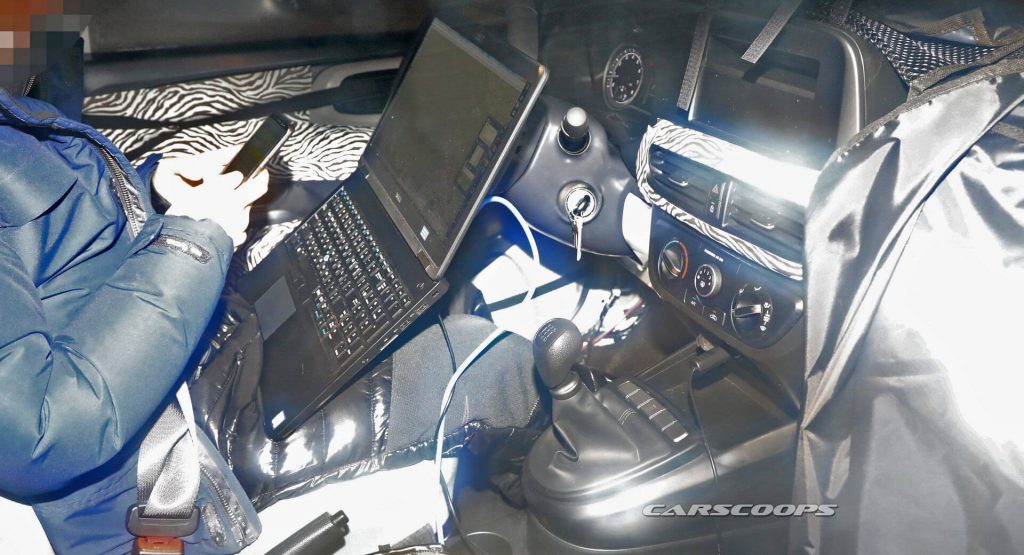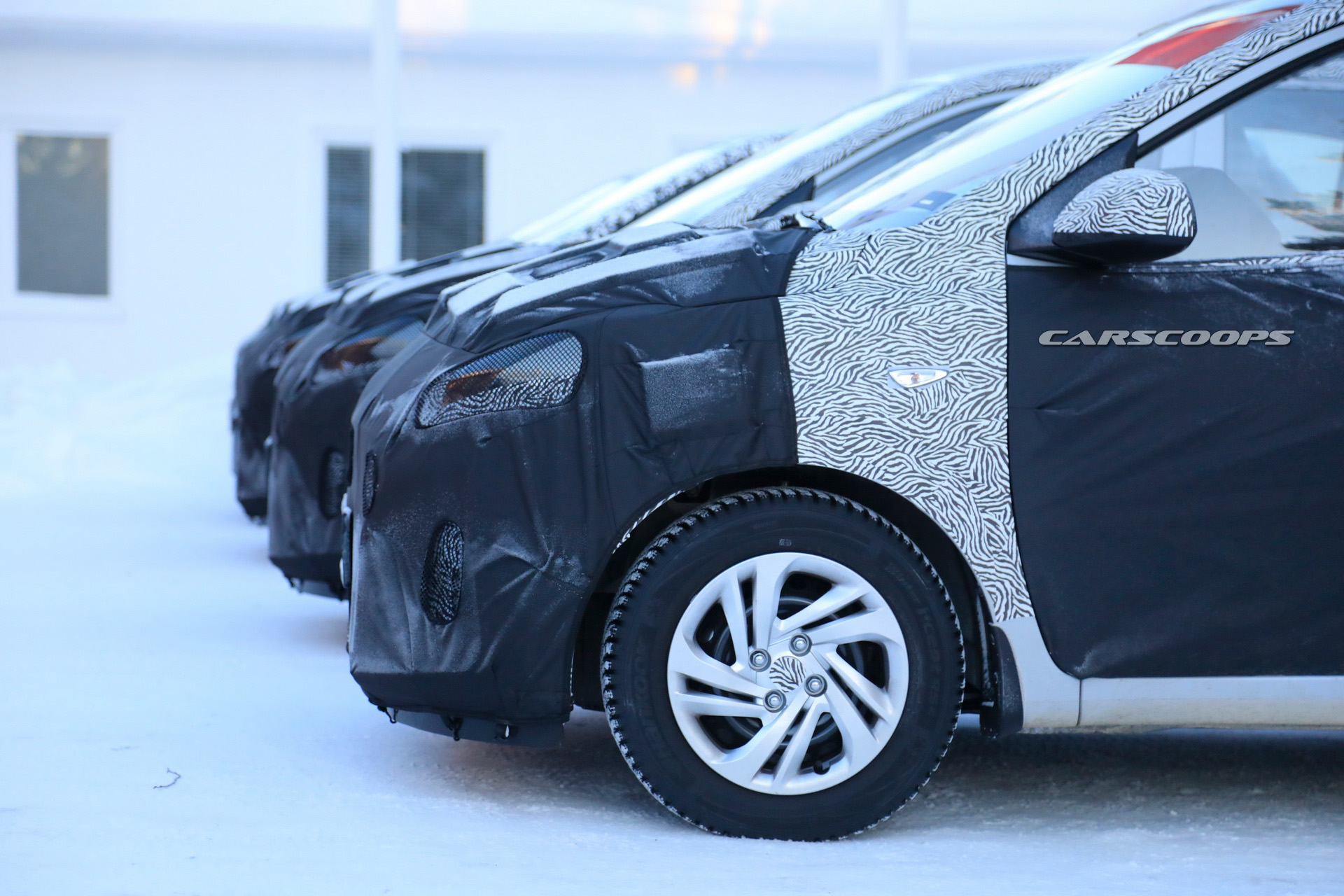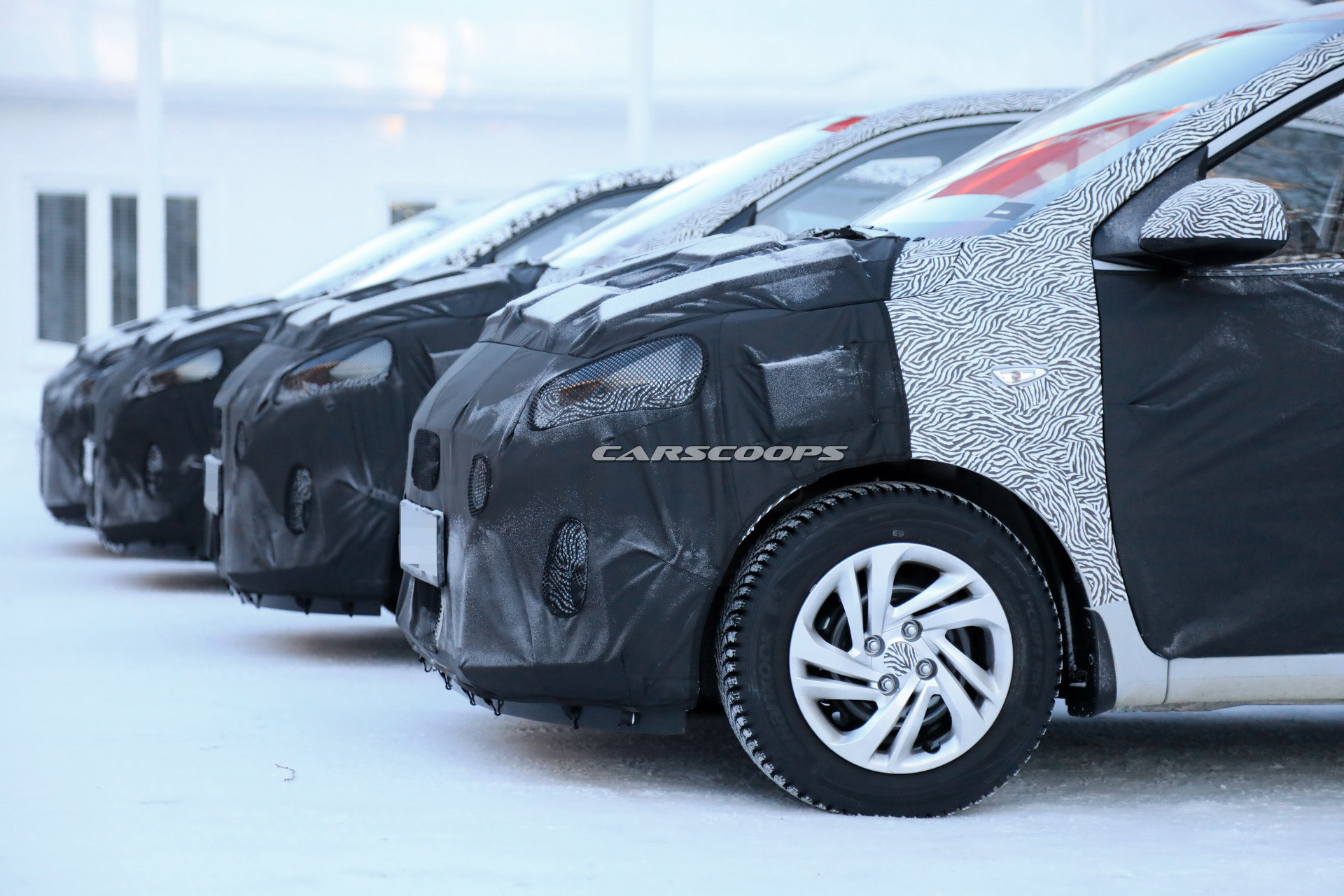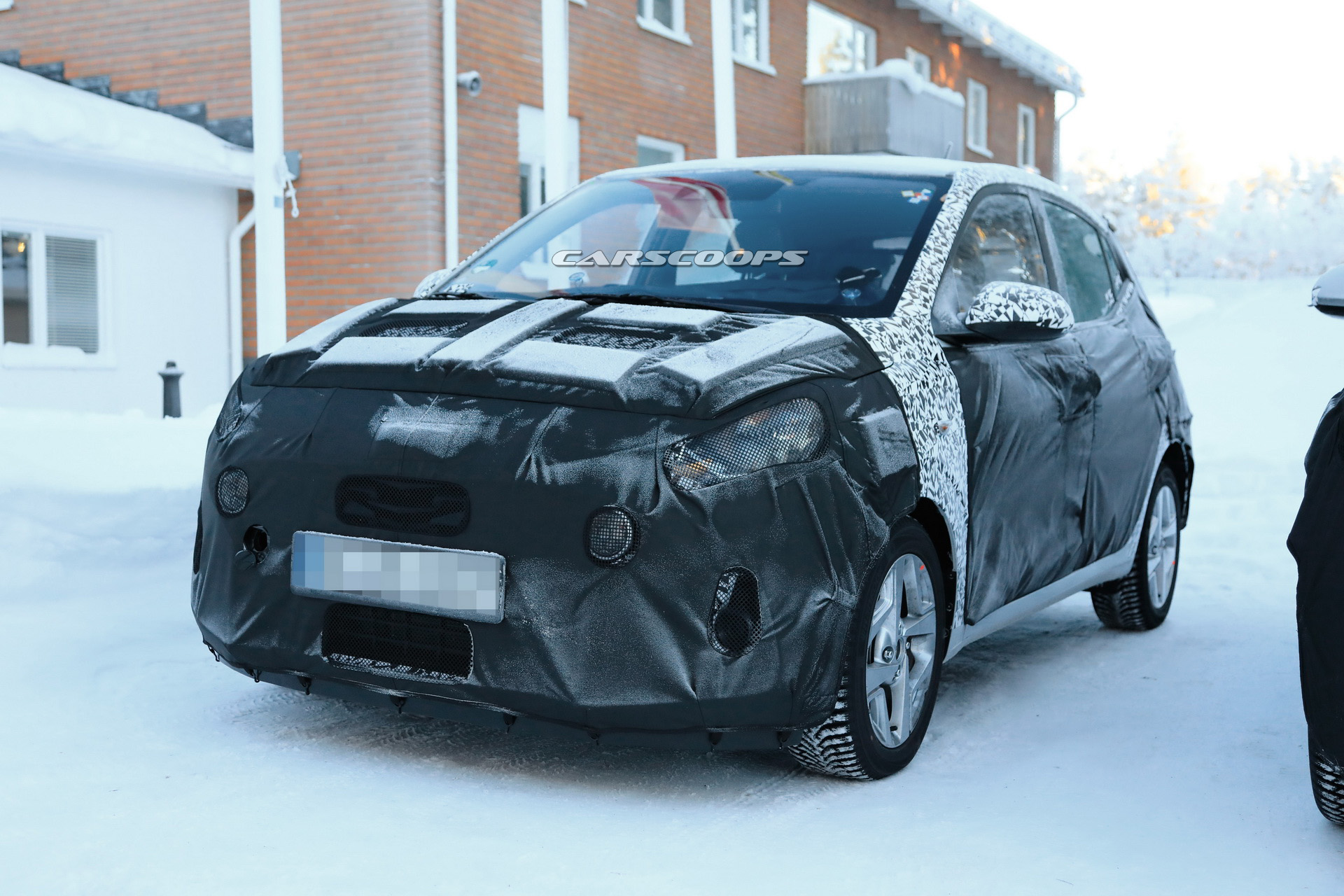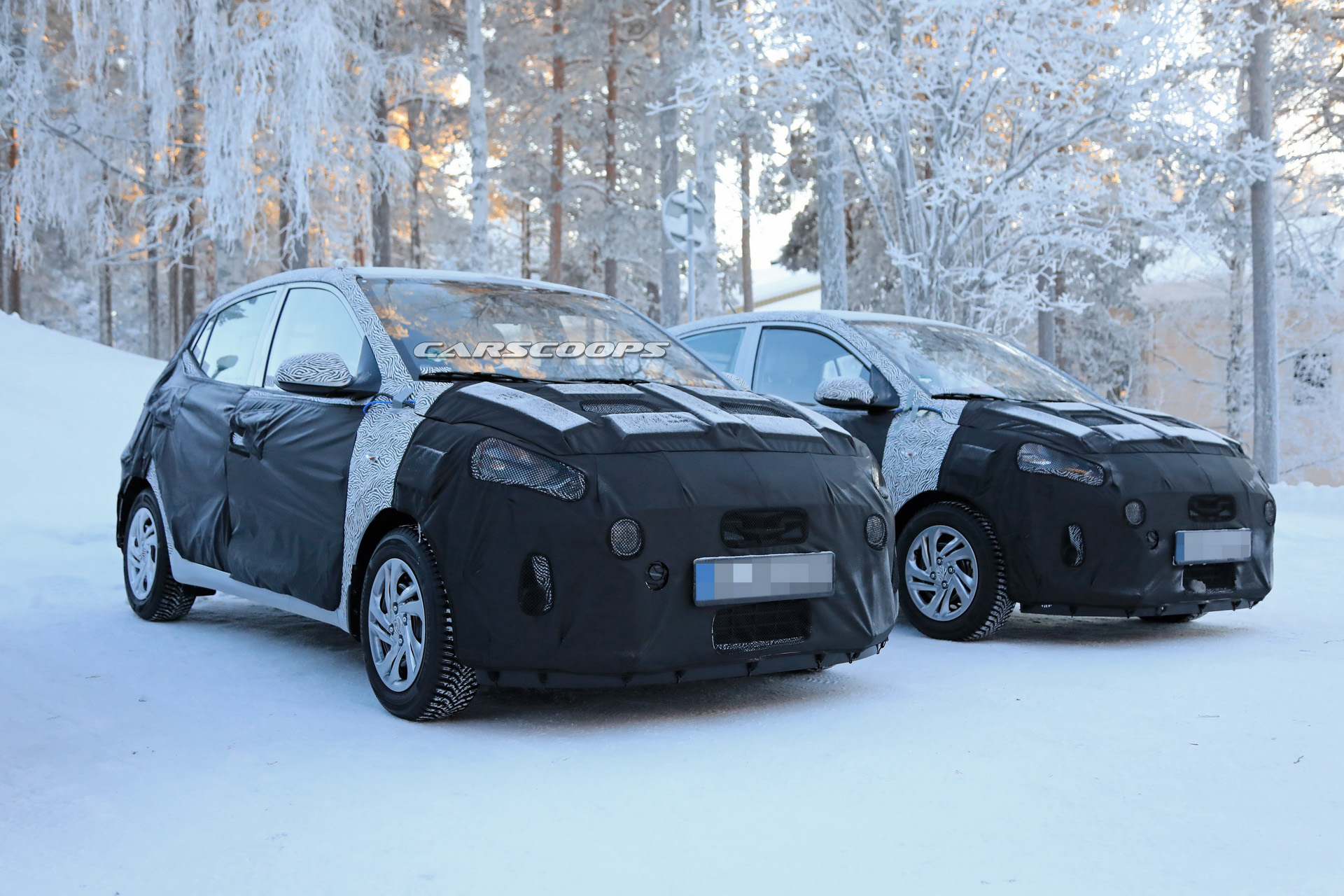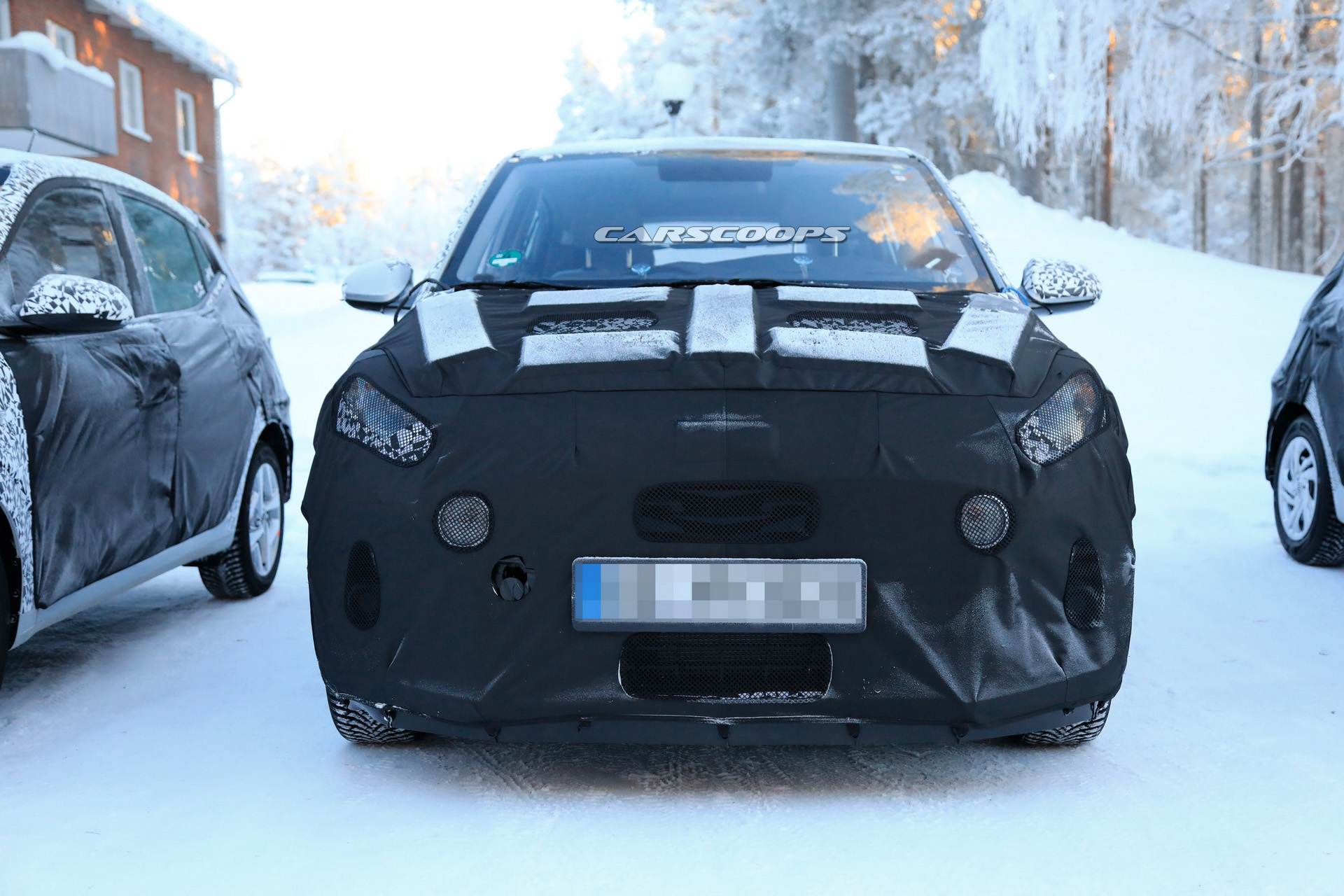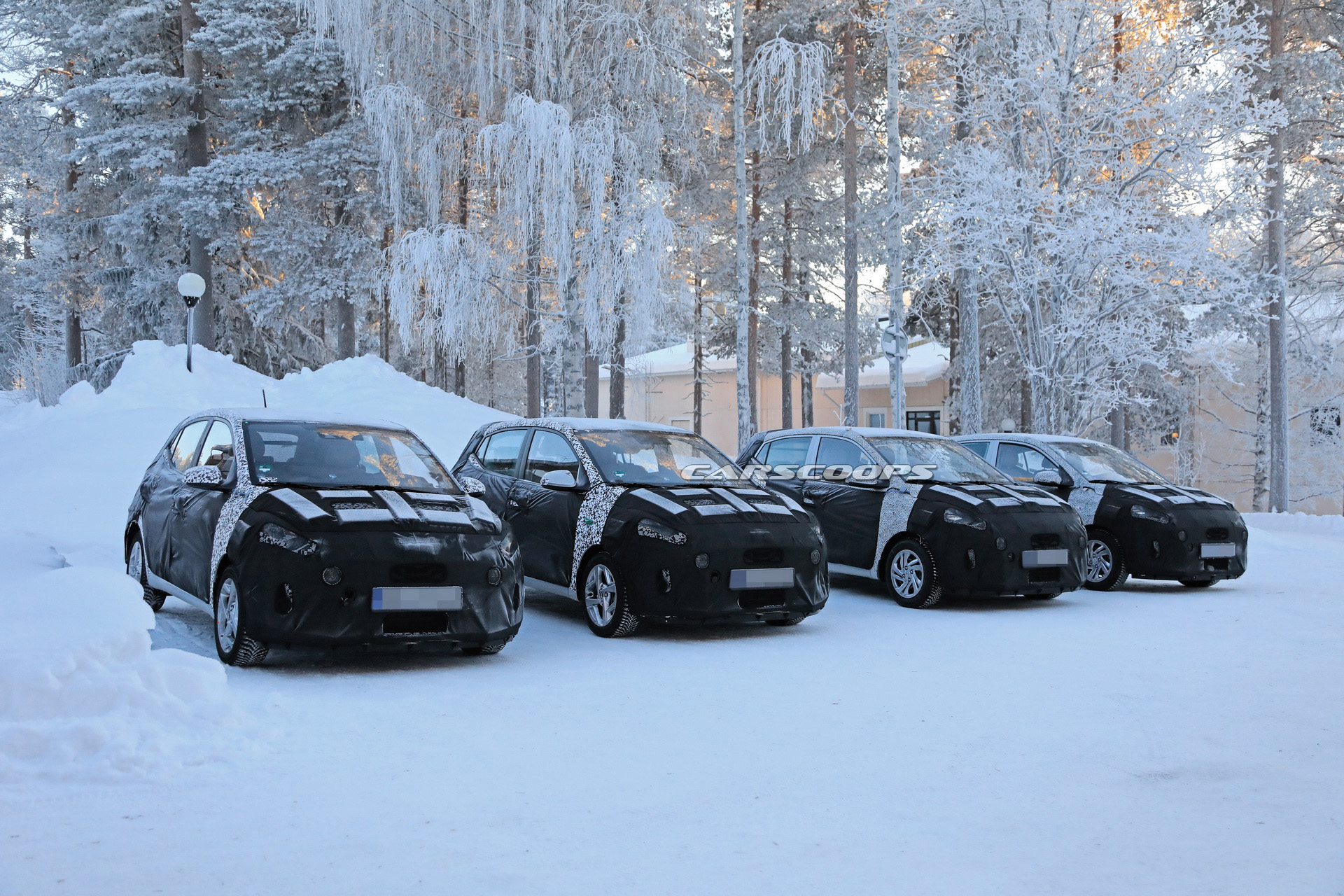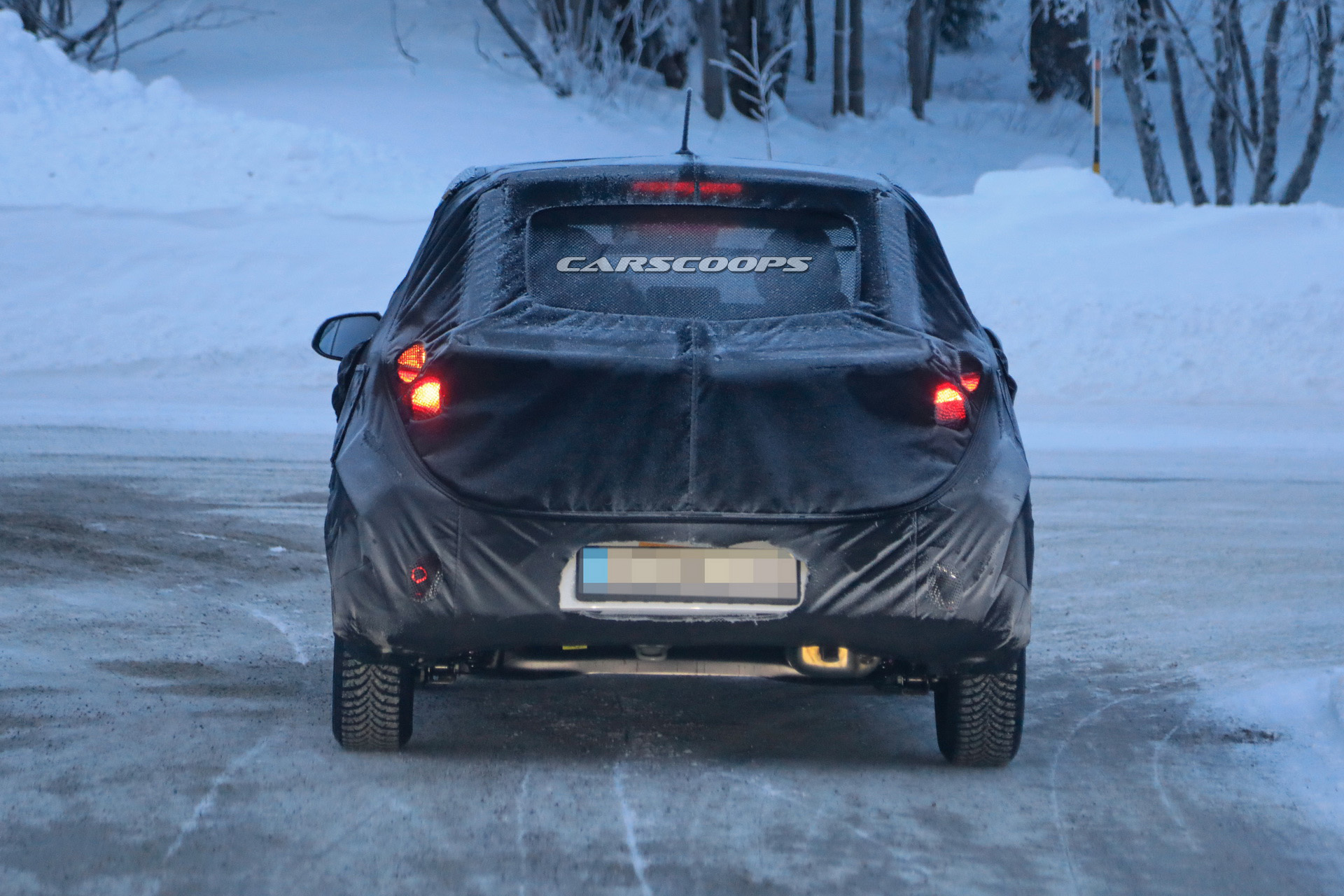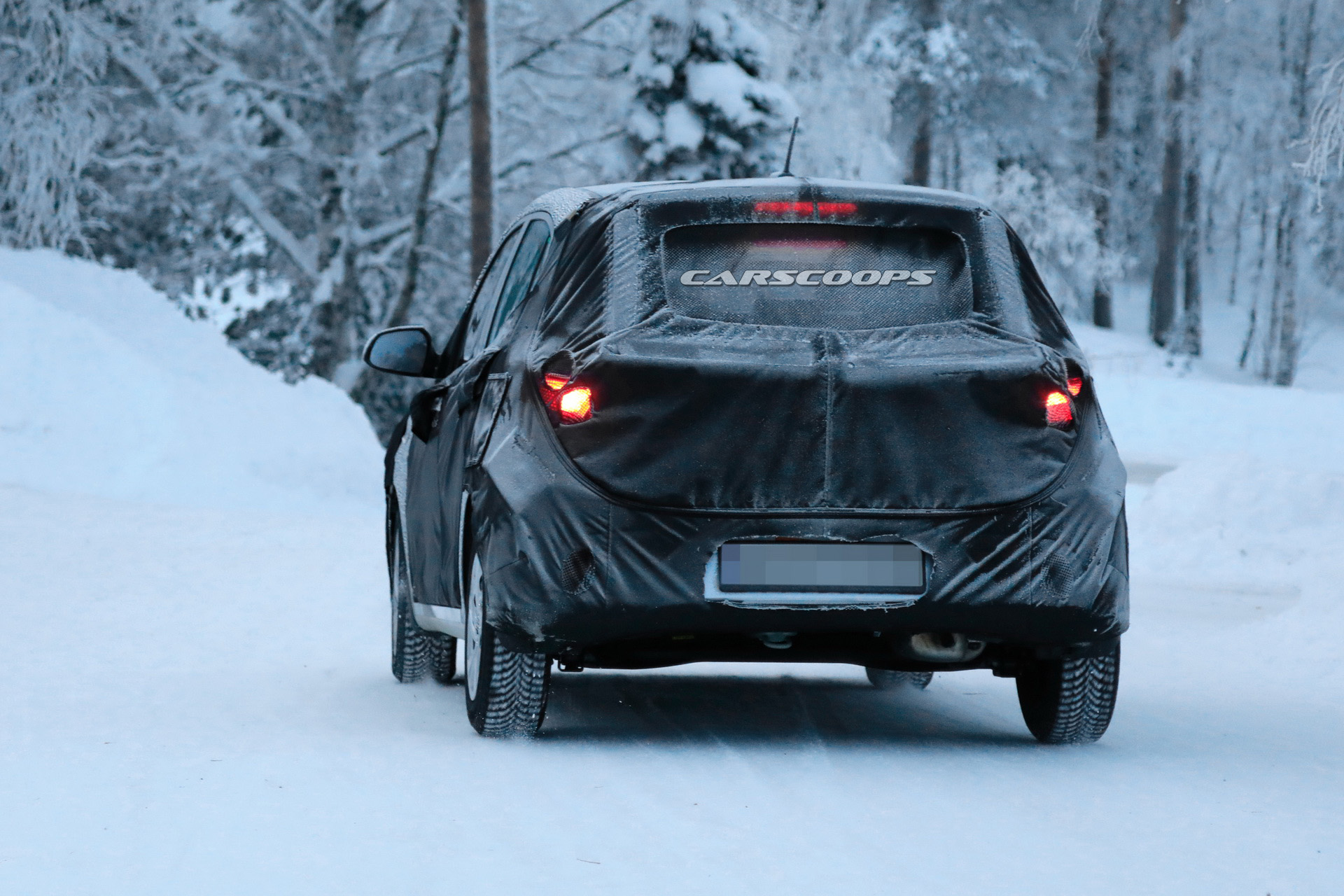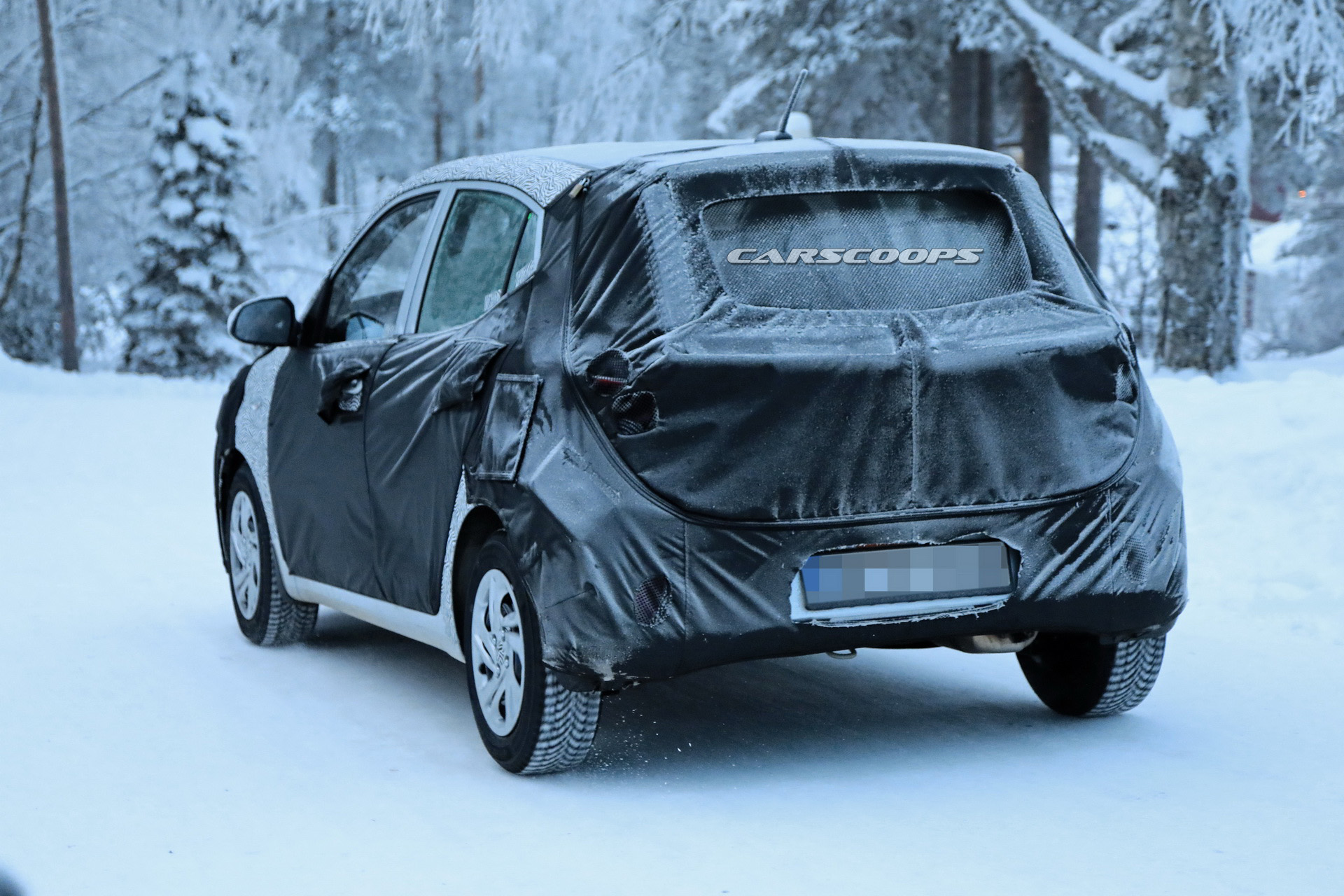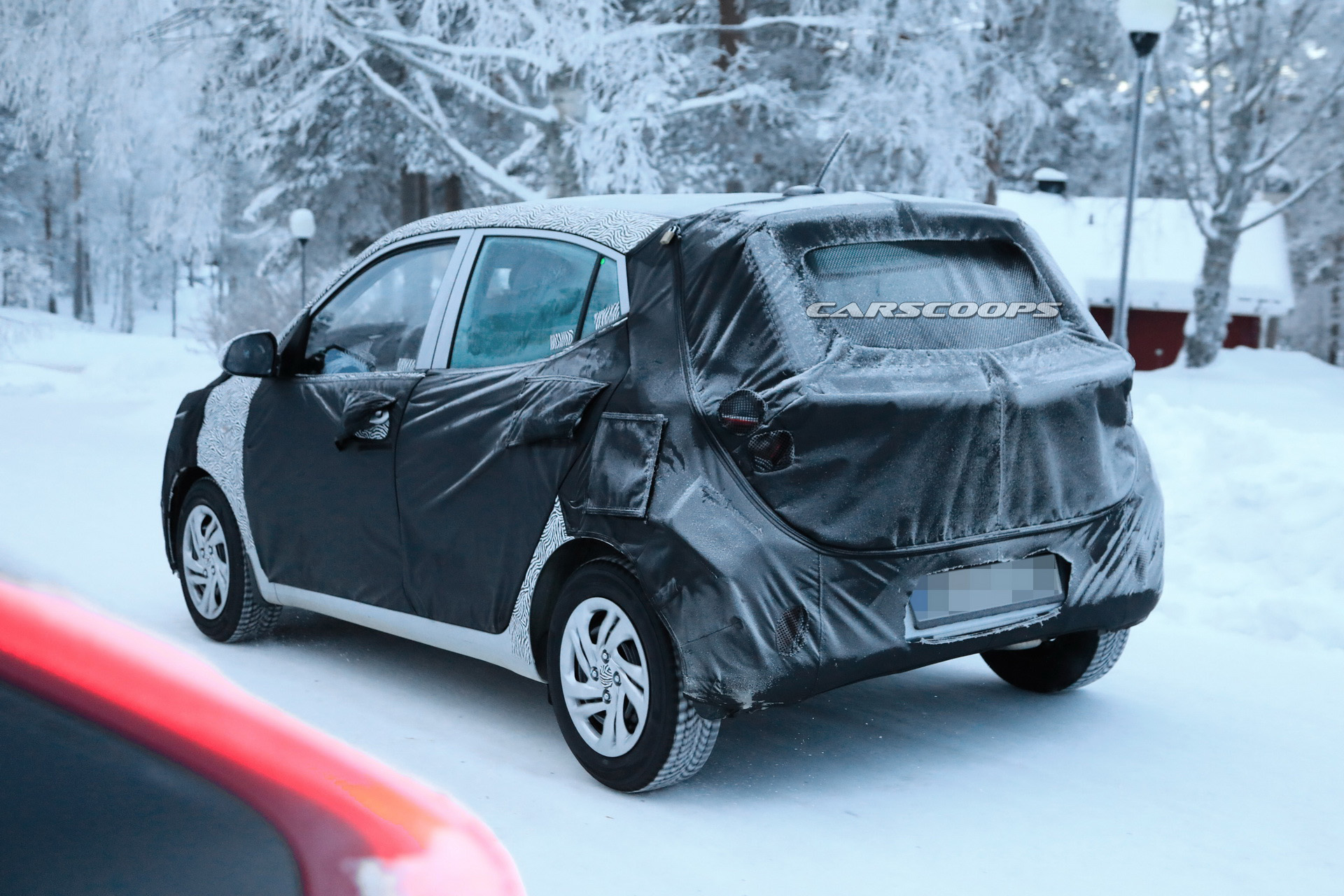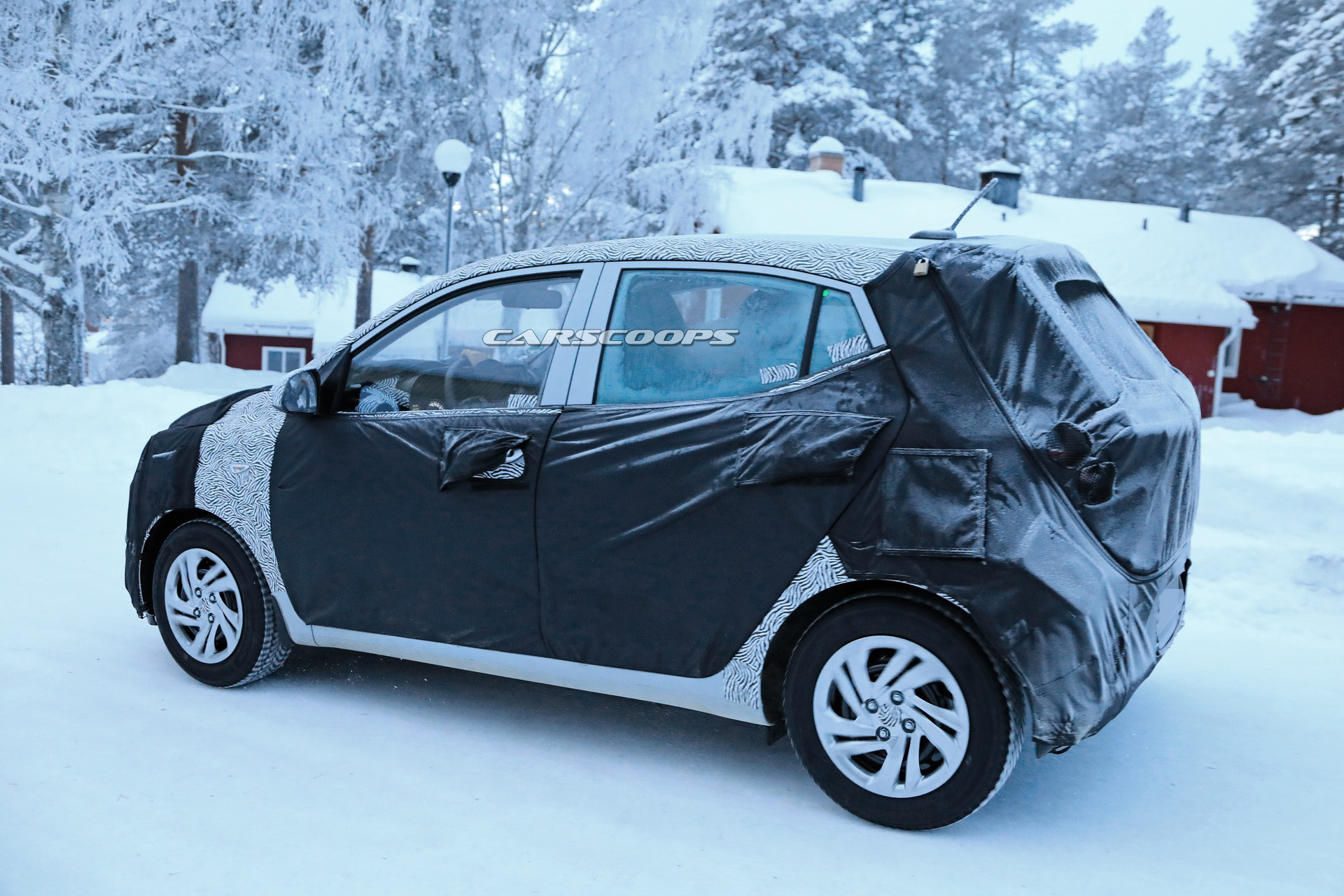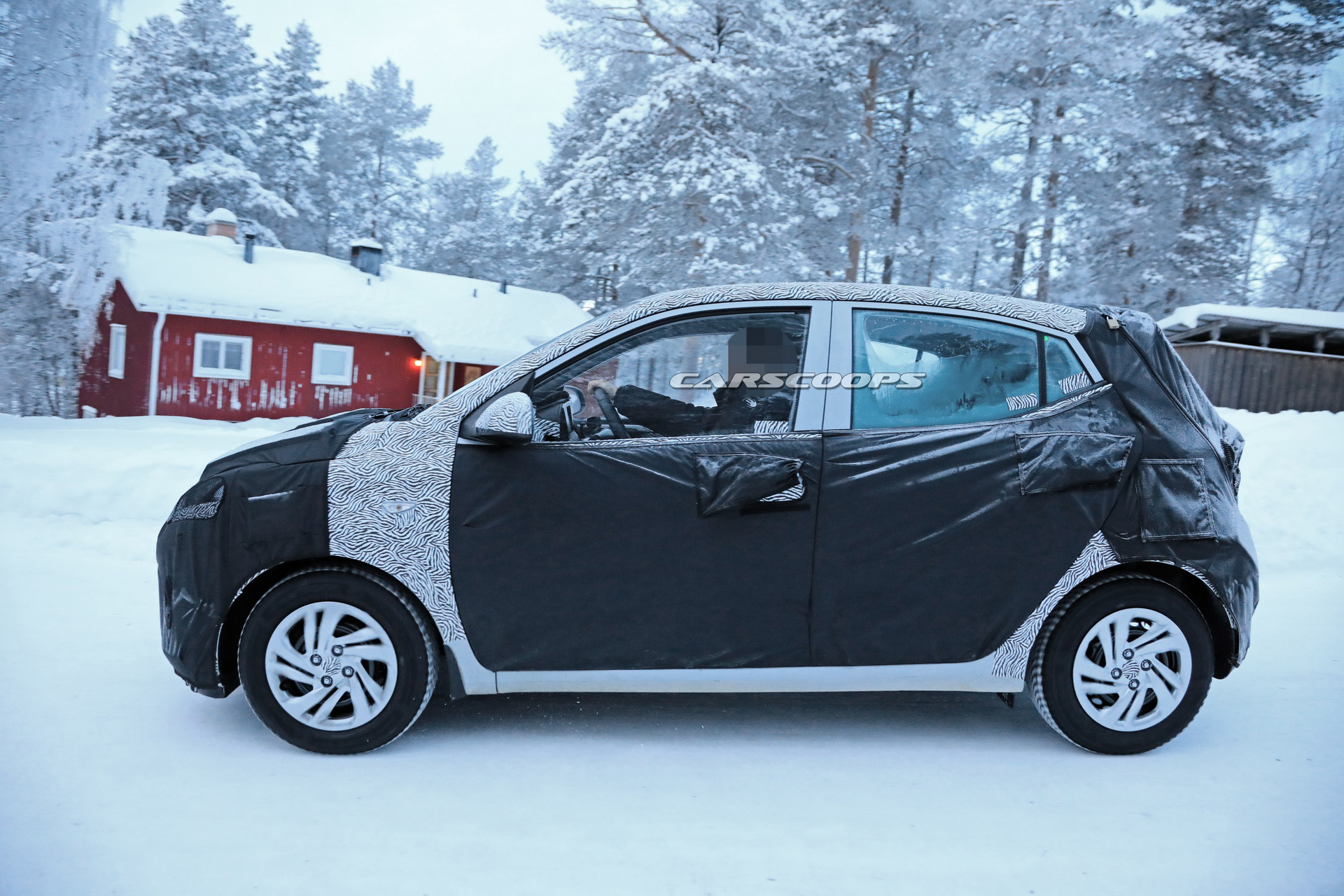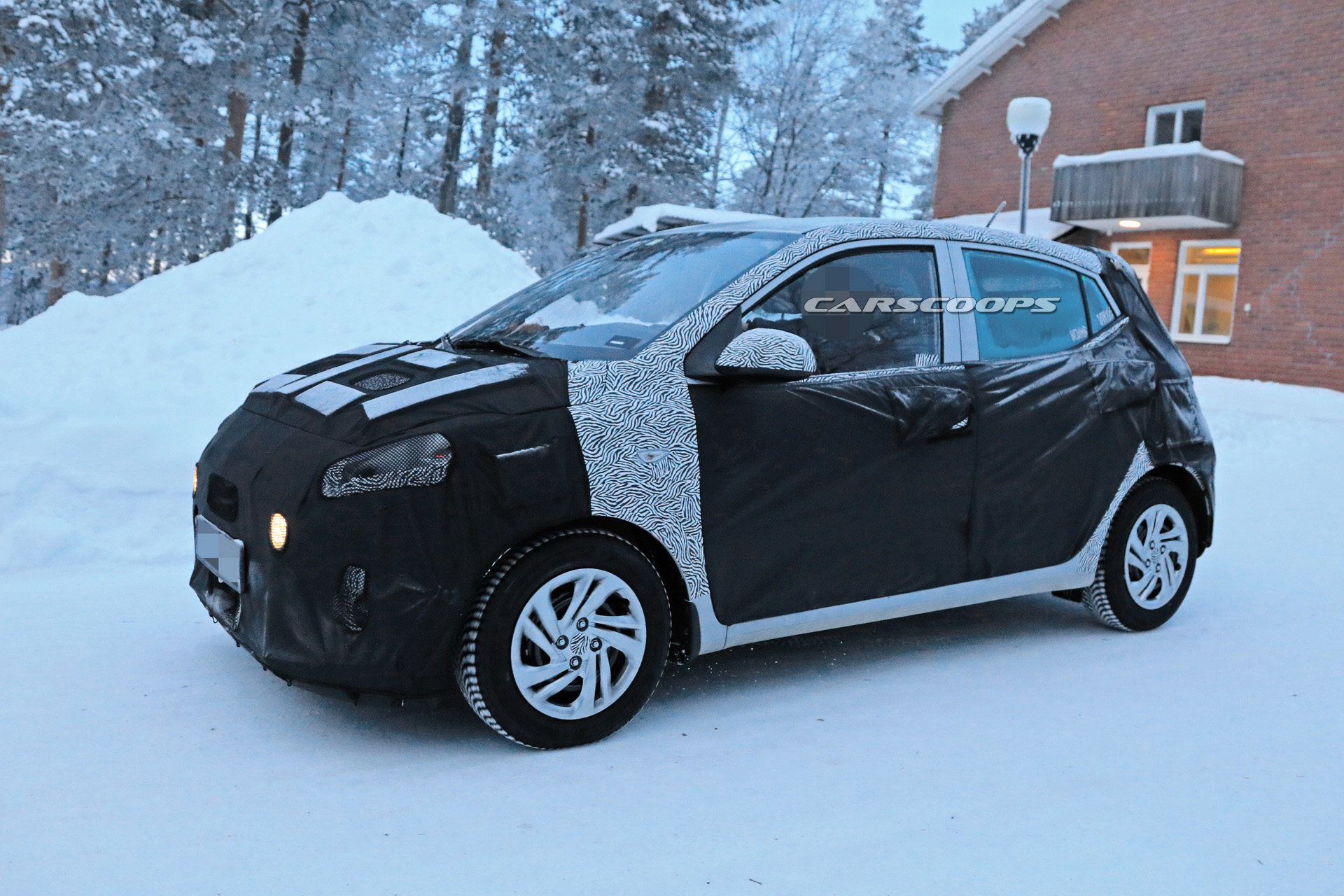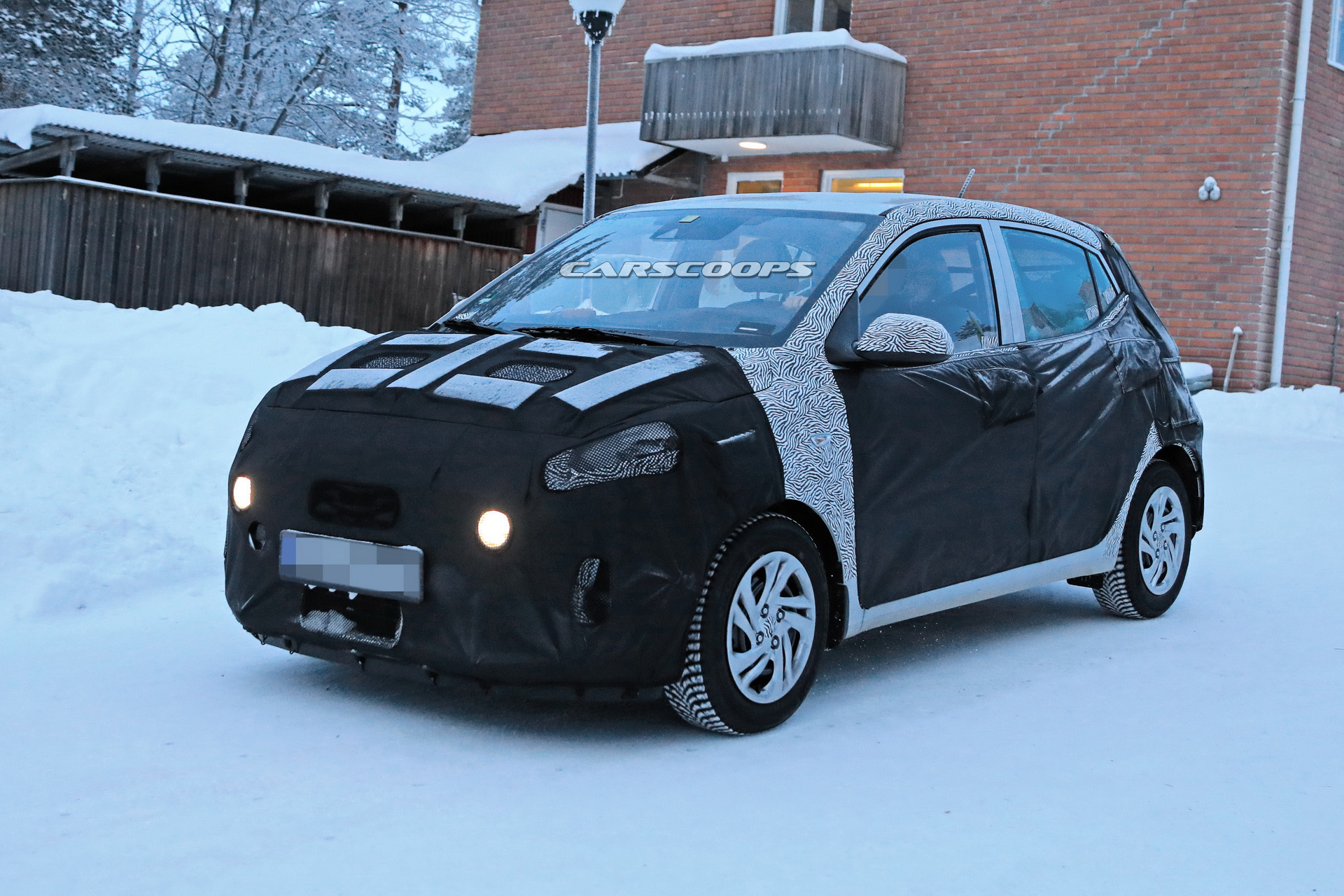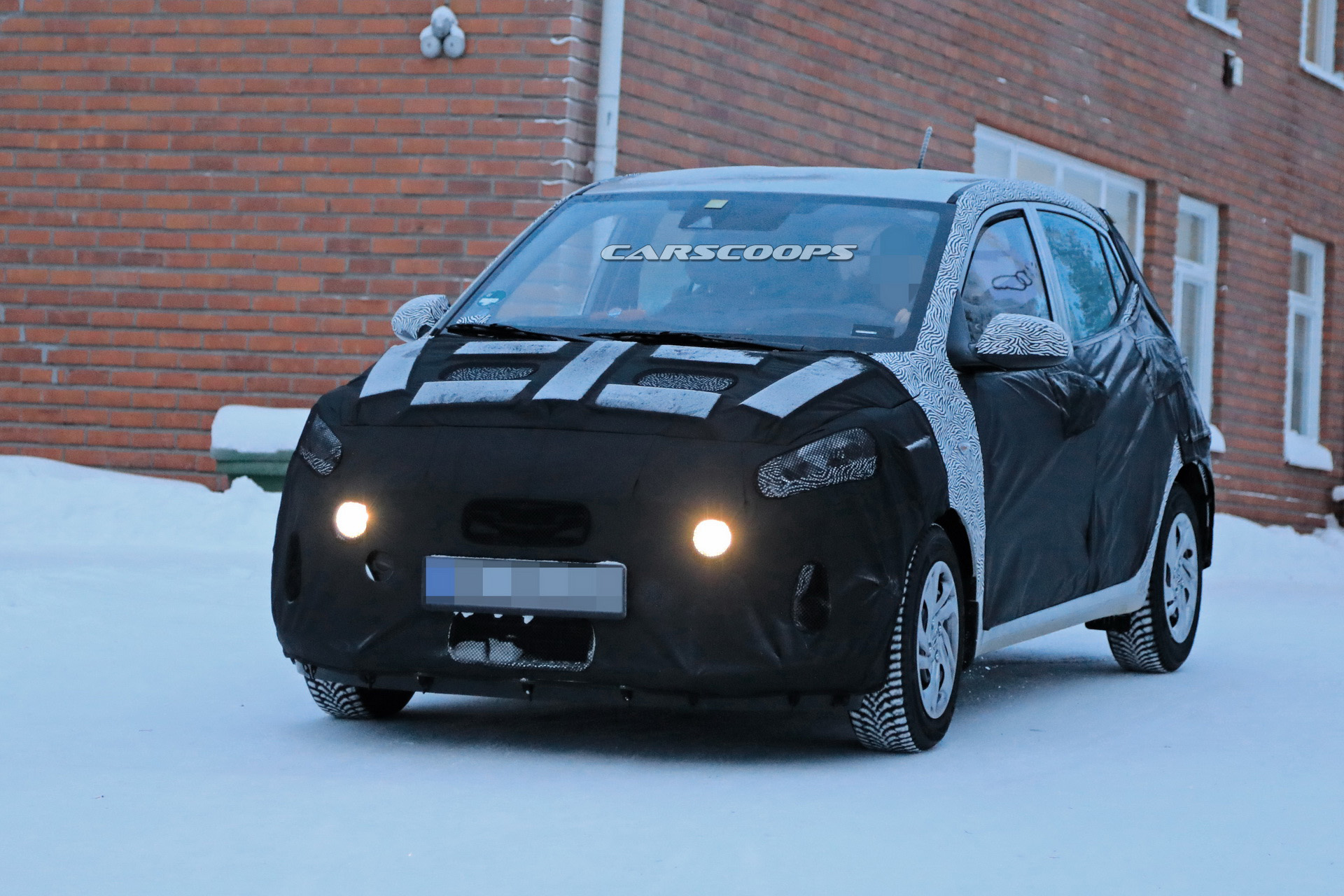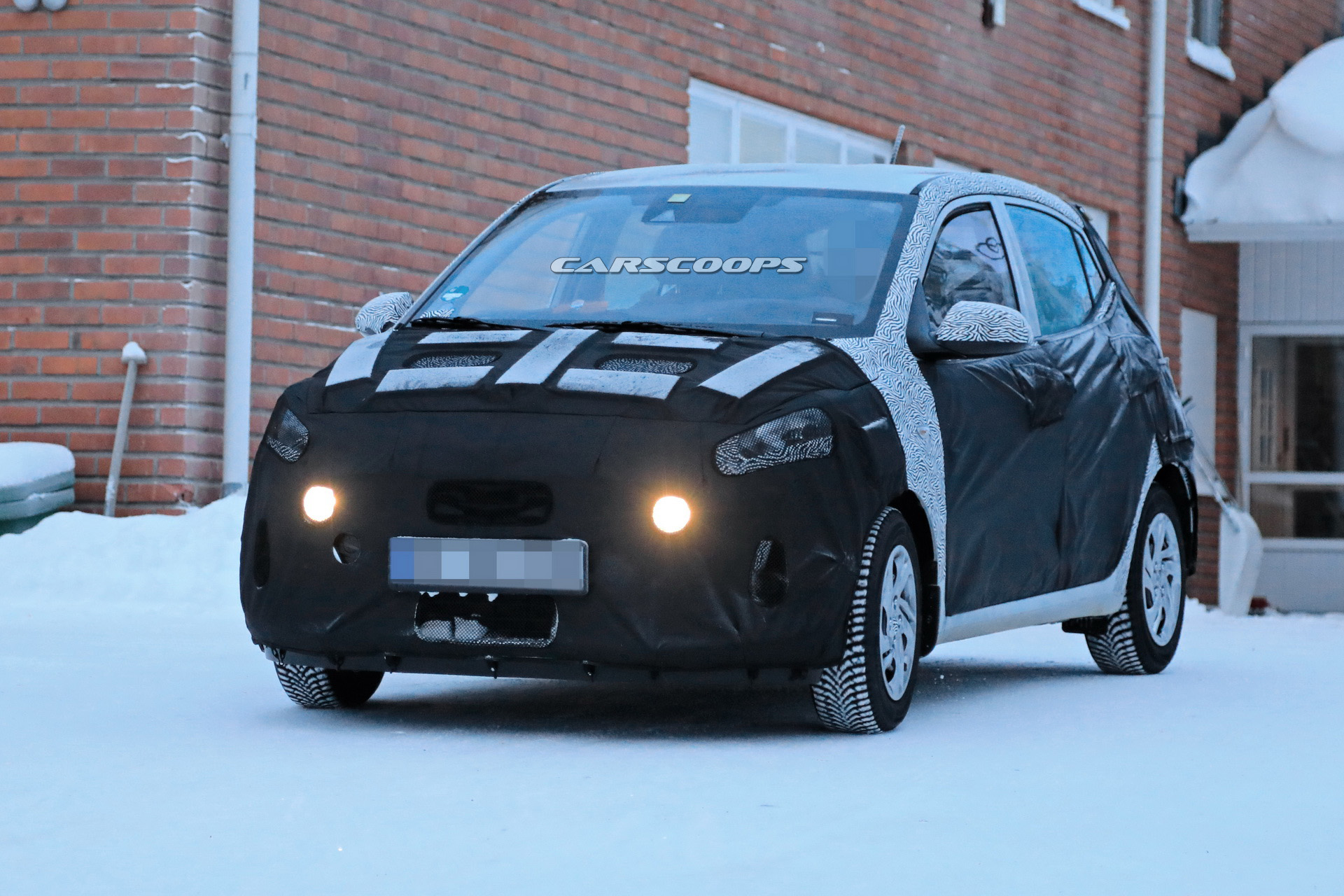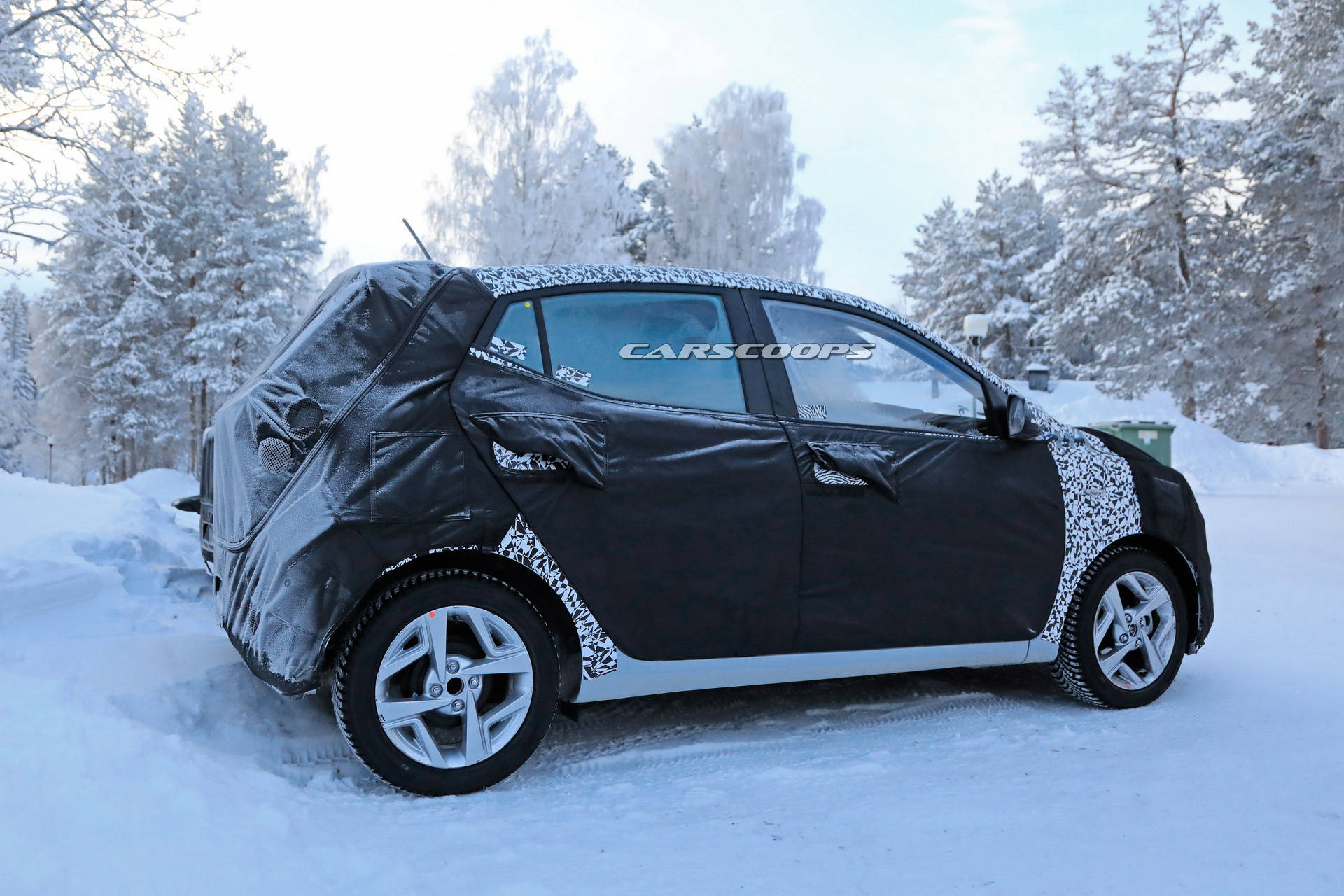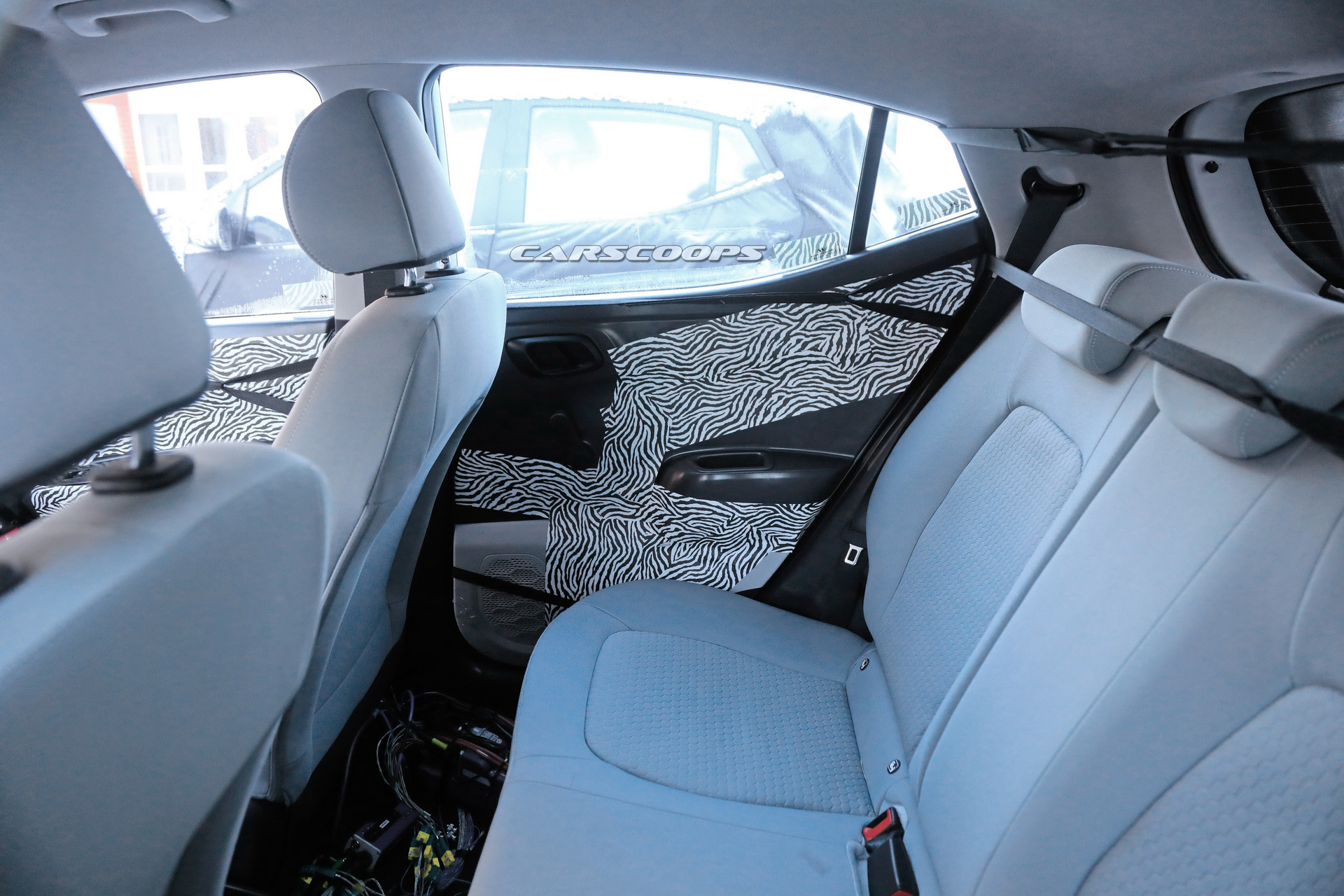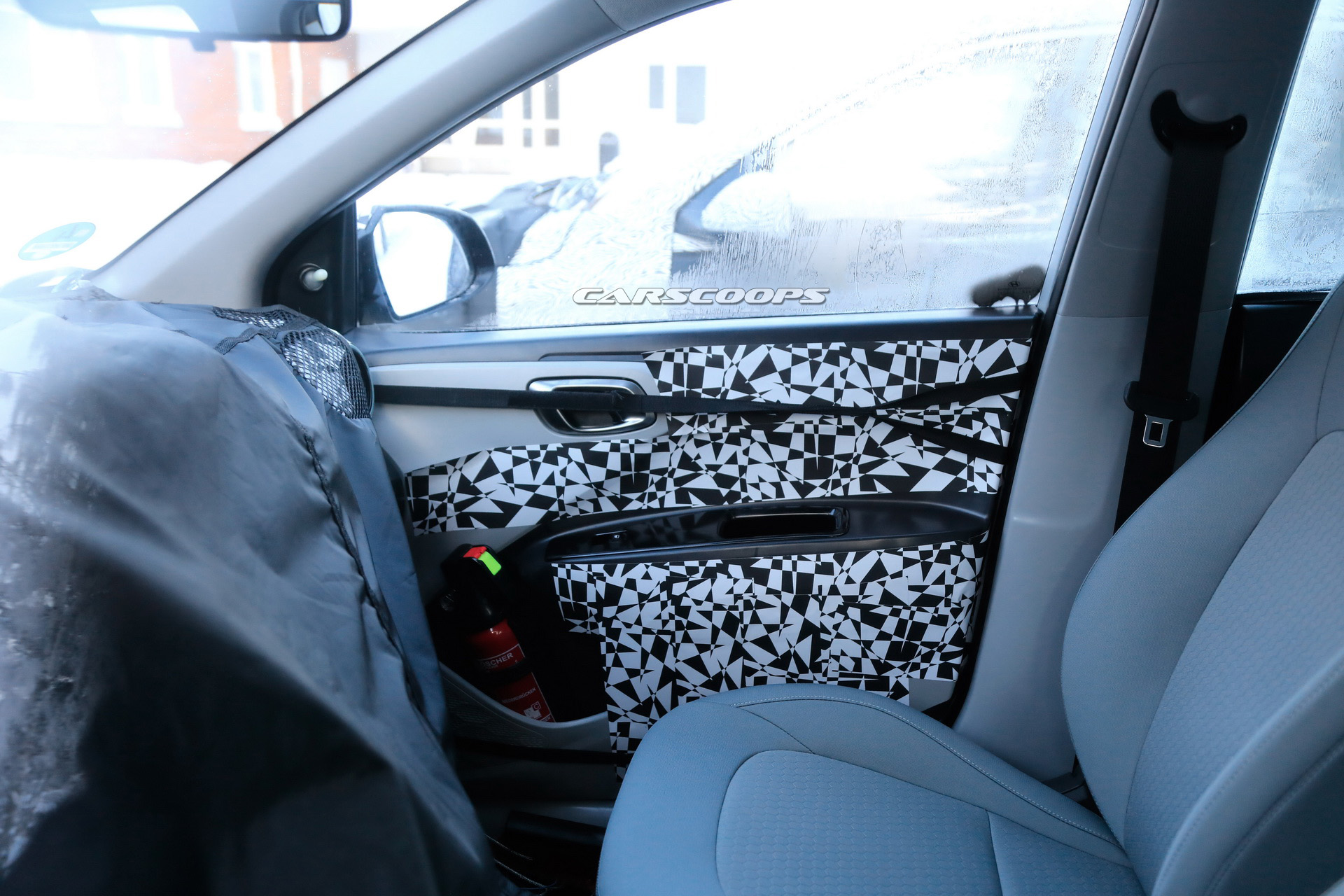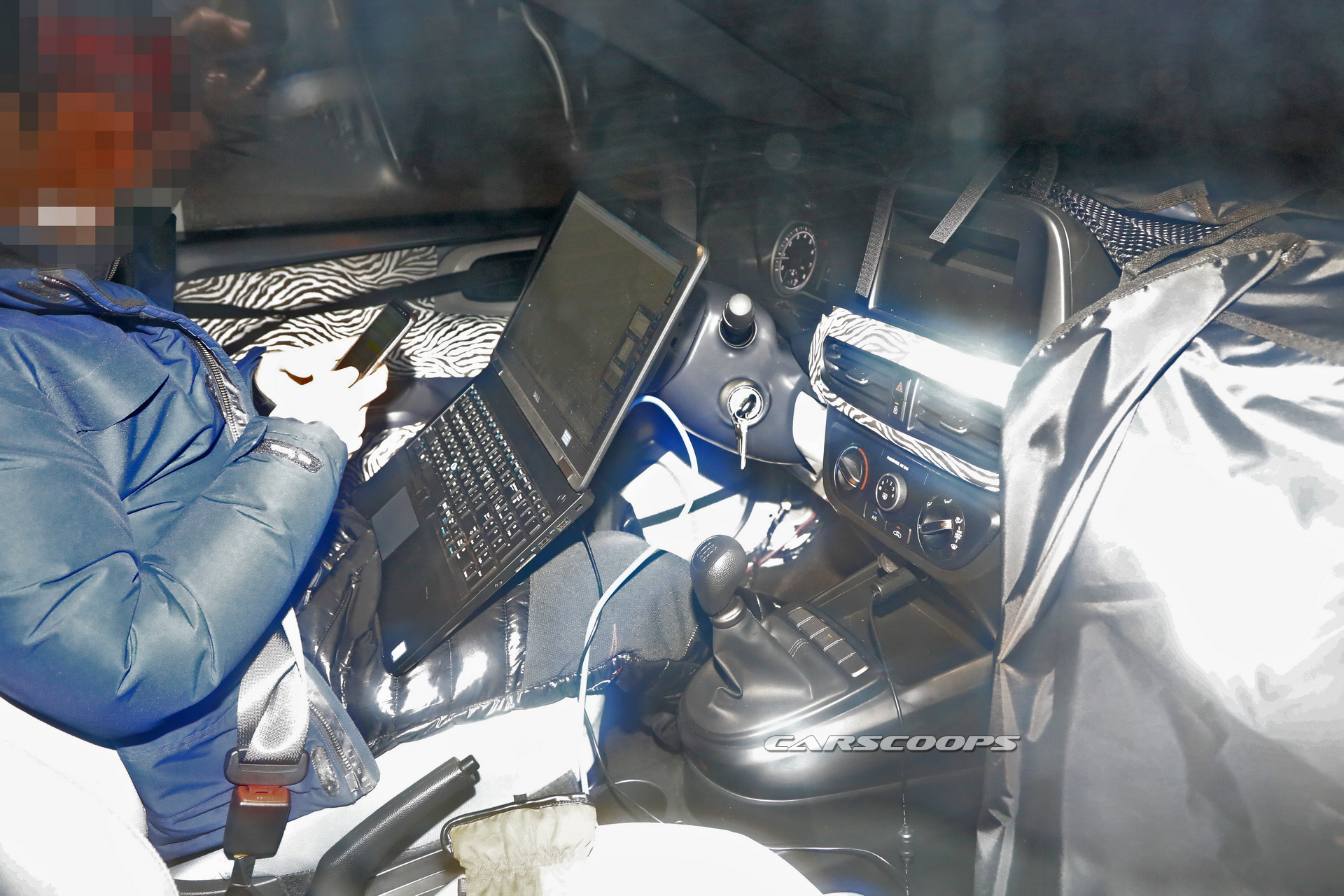If you like to ride around in cars that are even easier to park and maneuver than regular superminis, then you might be interested to know that a third-generation Hyundai i10 is well on its way.
The A-segment city car was first introduced back in 2007, and endured until 2013, when the much-improved second generation model came out. Now, the Korean automaker is at it again with a whole new i10, which we expect will be safer and more connected than any of its predecessors.
New dashboard, new tech
Compared to the second-gen model, this all-new i10 features a completely new dashboard design. No longer is the relatively small infotainment screen flanked by two large round air vents, as that entire space as been allocated to a brand new display, much larger in size.
The vents have been moved below the screen, and are now rectangular, while the climate control system is pretty much where it was before. The gauge cluster has also been re-designed, with a classic dual gauge layout of equal size, rather than having the rpm gauge break off into the large speedometer like before.
Not much else is visible inside, apart from five buttons next to the 5-speed manual transmission shifter. Overall, look to the latest Kia Picanto’s interior and you might better-understand what to expect from the new Hyundai i10.
Keeping it downsized
Since these prototypes are well-camouflaged, we’re not sure what Hyundai is doing in terms of design language. The cutouts do suggest that the current model’s front fascia layout will be kept to some extent, although it will surely undergo changes.
If the all-new Hyundai i10 is to mirror the Picanto with regards to its engine range, then we can expect 1.0-liter inline-three and 1.2-liter inline-four units to be offered, along with either five-speed manual or four-speed automatic transmissions.
Hyundai will probably unveil the third-gen i10 either sometime this year or in early 2020.



